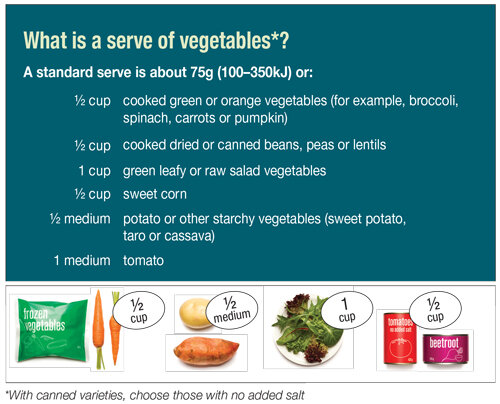Fresh, Frozen or Canned - What to buy when supplies are short
/Given the current circumstances with coronavirus, we’re starting to see serious shortages of fruit and vegetables. Canned and frozen foods have copped a lot of flack in the past, but are they suitable when supplies are short?
For the majority of Australians, we’ve been seeing a gradual increase in the price of fresh produce, a result of the recent drought and bushfires that ravaged the country earlier this year. Prices for fresh produce are projected to increase by up to 25% over the next few months.
In this current climate, we’re starting to see serious shortages of fruit and vegetables and things are proving to be a little unpredictable, stores might have plenty one day, but little the next. We have also been advised to limit our time outside of the house and shop less frequently. Given all of this, we should be trying to maximise the shelf life of our fresh vegetables and also consider the options of frozen and canned produce, too.
5 serves of veg, 2 serve of fruit everyday.
First things first, we would never recommend on skipping the fruit or veggies, even in a pandemic. The Australian Dietary Guidelines recommend a daily intake of five serves of vegetables each day and two serves of fruit. The guidelines do not specify which format these vegetables or fruit should be eaten in.
A serve of vegetables is equal to 1 cup of leafy veg (salad, greens, etc) or 1/2 cup of cooked veg (such as steamed or baked). This serving quantity is the same regardless of what form the vegetables came in, fresh, canned or frozen.
A serve of fruit is equal to 1 medium piece of fruit, or 1 cup of chopped fruit. 1/2 Cup of fruit juice and 30g of dried fruit is also considered a serve, however I strongly recommend you try to consume fresh, frozen or canned fruit instead.
Frozen Produce
The shelf life of frozen vegetables is much longer than fresh, lasting up to 12 months, with little change to nutrition or quality of the produce.
In some cases, frozen vegetables have a higher nutritional quality than fresh vegetables, especially if there is a short time between harvest and freezing. However, some nutrients (namely B group Vitamins and Vitamin C) are vulnerable to the freezing process and may be lower than their fresh counterpart.
If you are looking to freeze vegetables yourself, choose fresh, undamaged veggies and blanch them quickly before freezing. This helps to retain colour, flavour and nutritional quality.
Most frozen fruits are snap frozen, allowing the majority of nutrients to be preserved with no change to the nutritional profile. Frozen fruit, especially berries are much cheaper than the fresh alternative and these offer a very similar nutritional profile. I use frozen fruit in a range of baking and highly reccommend any frozen fruit.
Canned Fruit & Vegetables
Canned vegetables have a variable shelf life, ranging anywhere from one to five years.
Canned vegetables have a similar nutritional profile to fresh. However, be mindful of the format you are purchasing, come vegetables are processed prior to canning (such as peeling) and this may decrease the nutritional quality. When you are choosing canned vegetables, choose those with no added salt and be sure to rinse canned legumes and lentils thoroughly. If purchasing canned fruit, choose those in juice or no added sugar. Maybe (often cheaper) canned fruits are in syrup and this is high in refined sugars.
Once opened, canned fruit or vegetables should be removed from the can and stored in a separate container in the refrigerator for up to three days.
Do Your Best
The world is a very strange place at the moment, we’ve lost so much normality and things seem to be changing on the daily. Be realistic with what you can and can’t do with your diet.
The vast majority of Australians aren’t meeting their recommended daily five serves of vegetables and two fruit serves and choosing nutritious foods is the key to improving your health, particularly in times like now. Consider trying cheaper alternatives and remember that there is nothing wrong with canned or frozen produce.
Looking for more ways on how to cut costs when shopping? Click here.
Looking for some recipe ideas using pantry staples, check out my recent work created for Blackmores Australia





